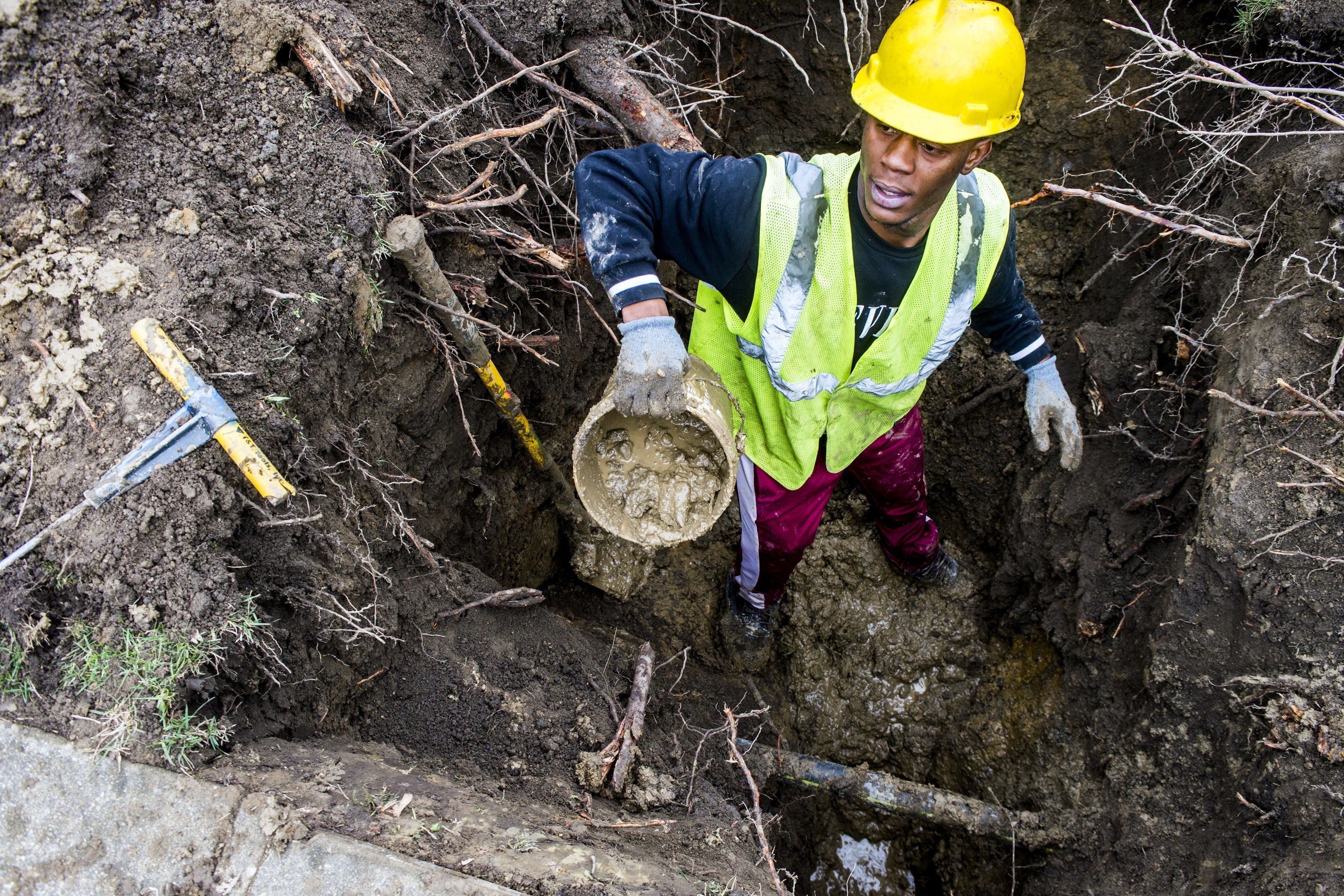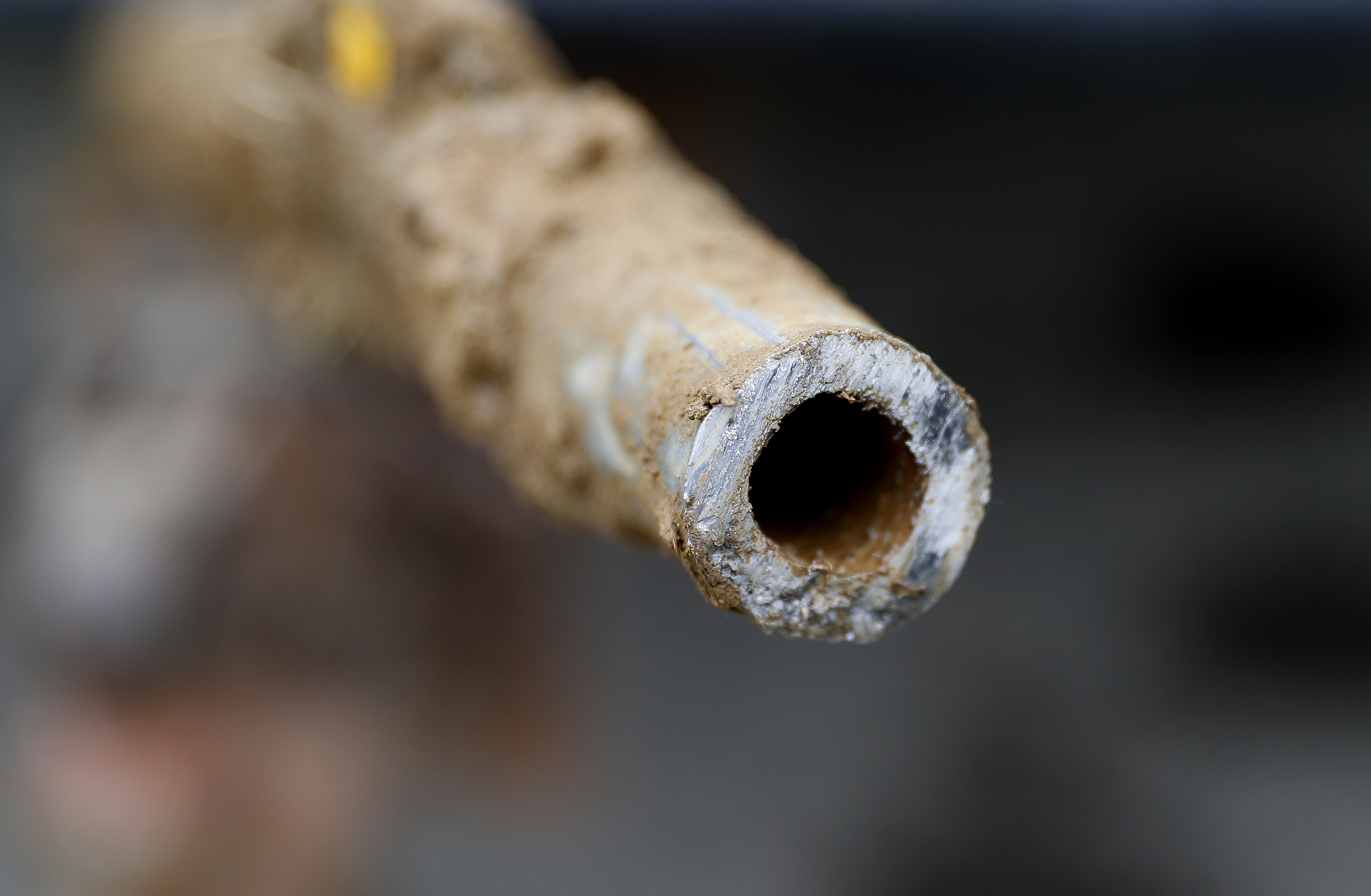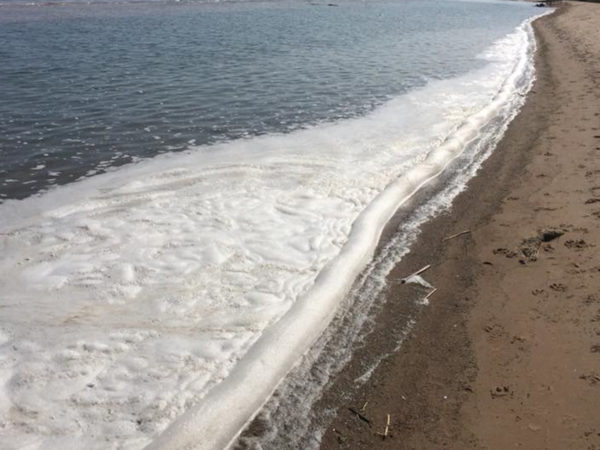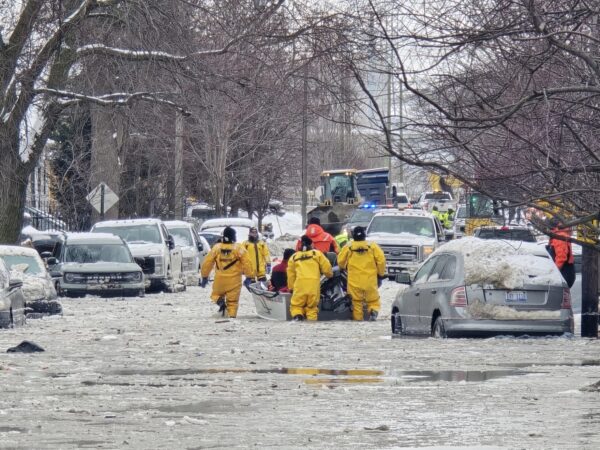
TRAVERSE CITY, Mich. (AP) — Gov. Gretchen Whitmer announced a $500 million plan Thursday to upgrade drinking water and wastewater infrastructure in Michigan that includes actions such as replacing lead service lines and removing chemical pollutants.
The initiative, dubbed MI Clean Water, calls for creating a pot of money from which local governments could apply for grants or loans to improve their water treatment systems.
It would draw on a variety of sources, including federal funds and state-issued bonds. Approval from the Republican-controlled legislature would be needed for use of some funding. But no new appropriations or tax increases would be needed, state officials said.
“The MI Clean Water investment will help us rebuild Michigan’s water infrastructure and will prioritize and invest directly into protecting our public health, environment, and economy,” Whitmer said in a statement.
“It’s time for the legislature to take bold actions to invest in Michigan’s infrastructure and protect our water from toxic contamination,” the Democratic governor said. “Michiganders are tired of waiting for action, the time is now.”

FILE – In this July 20, 2018, file photo, a lead pipe is shown after being replaced by a copper water supply line to a home in Flint, Mich. (AP Photo/Paul Sancya, File)
Drinking water quality has been a primary concern in Michigan in recent years with the discovery of lead contamination in Flint and other cities, as well as chemical compounds known as PFAS that raise a variety of health concerns.
“Now is the perfect time to invest state and federal dollars in a coordinated way to encourage job growth in water infrastructure jobs,” said Liesl Clark, director of the state Department of Environment, Great Lakes and Energy. “This work will ripple throughout both the economy and the systems that protect public health, strengthening both.”
The plan would spend $207.1 million on drinking water improvements including replacing lead service lines in disadvantaged communities; removing PFAS chemicals; and treating water to meet government standards for lead and copper.
An additional $293 million for wastewater protection would fund grants for projects intended to prevent sewer overflows and discharges of raw sewage from surface or ground water, make use of green infrastructure and eliminating failing septic systems.
Detroit Mayor Mike Duggan said the program would help the city expand a water main replacement initiative and replace 2,000 additional lead service lines.
“As we do with all of our capital projects, we will hire Detroiters to do this work,” Duggan said in a statement released by the governor’s office. “We also plan to dedicate a portion of these funds to expand our affordability programs to help our most impoverished residents, who cannot take advantage of our other assistance programs.”
State Sen. Rick Outman, a Republican from Six Lakes, said funding previously appropriated by the legislature could be combined with federal money to support the water system improvements.
“Having access to quality water is a fundamental, basic need that every Michigan family should have the right to,” Outman said. “There are several solid solutions in this proposal that I look forward to seeing further fleshed out.”
Catch more drinking water and infrastructure news on Great Lakes Now:
Canada Water Agency: Government hopes to consolidate water data and management
Policy Expert Q&A: Keep advocating with elected officials for safe drinking water
Across the U.S., millions of people are drinking unsafe water. How can we fix that?
Message to 2020 Candidates: Focus on water quality in Great Lakes states
Michigan’s State of the Great Lakes: Drinking water quality garners spotlight
API key not valid. Please pass a valid API key.Featured image: In this April 18, 2018, file photo, Flint, Mich., resident Jabaree Broach works as part of a crew digging out and replacing lead service lines on Calumet Street on Flint’s east side. (Jake May/The Flint Journal via AP, File)




